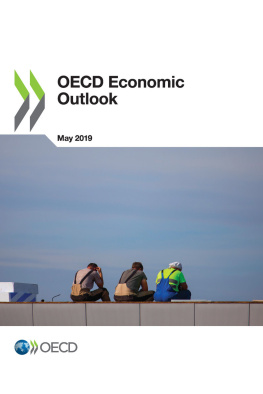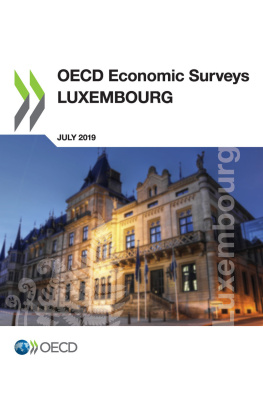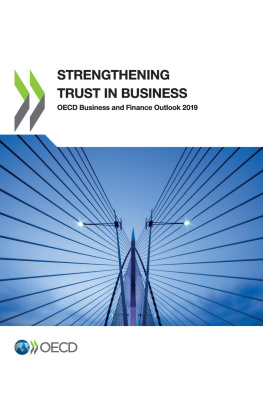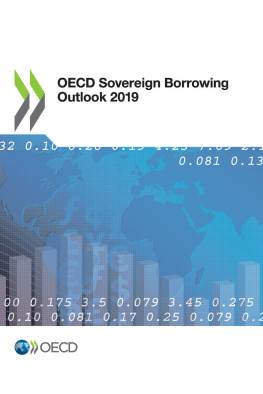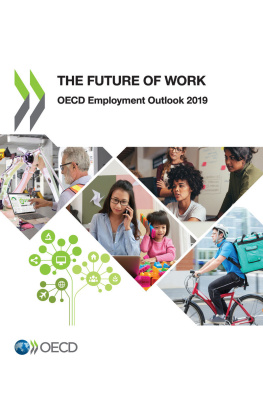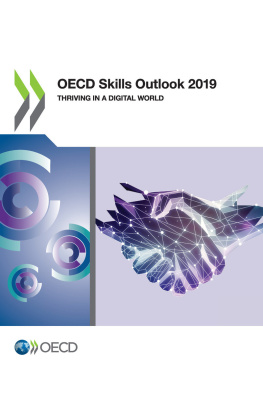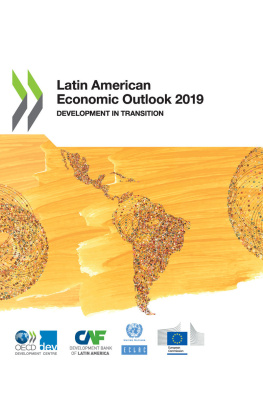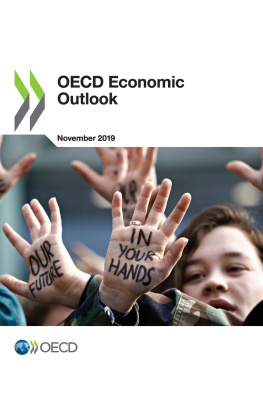OECD - OECD Economic Outlook, Volume 2019 Issue 1
Here you can read online OECD - OECD Economic Outlook, Volume 2019 Issue 1 full text of the book (entire story) in english for free. Download pdf and epub, get meaning, cover and reviews about this ebook. year: 2019, publisher: OECD Publishing, genre: Politics. Description of the work, (preface) as well as reviews are available. Best literature library LitArk.com created for fans of good reading and offers a wide selection of genres:
Romance novel
Science fiction
Adventure
Detective
Science
History
Home and family
Prose
Art
Politics
Computer
Non-fiction
Religion
Business
Children
Humor
Choose a favorite category and find really read worthwhile books. Enjoy immersion in the world of imagination, feel the emotions of the characters or learn something new for yourself, make an fascinating discovery.
OECD Economic Outlook, Volume 2019 Issue 1: summary, description and annotation
We offer to read an annotation, description, summary or preface (depends on what the author of the book "OECD Economic Outlook, Volume 2019 Issue 1" wrote himself). If you haven't found the necessary information about the book — write in the comments, we will try to find it.
OECD: author's other books
Who wrote OECD Economic Outlook, Volume 2019 Issue 1? Find out the surname, the name of the author of the book and a list of all author's works by series.
OECD Economic Outlook, Volume 2019 Issue 1 — read online for free the complete book (whole text) full work
Below is the text of the book, divided by pages. System saving the place of the last page read, allows you to conveniently read the book "OECD Economic Outlook, Volume 2019 Issue 1" online for free, without having to search again every time where you left off. Put a bookmark, and you can go to the page where you finished reading at any time.
Font size:
Interval:
Bookmark:
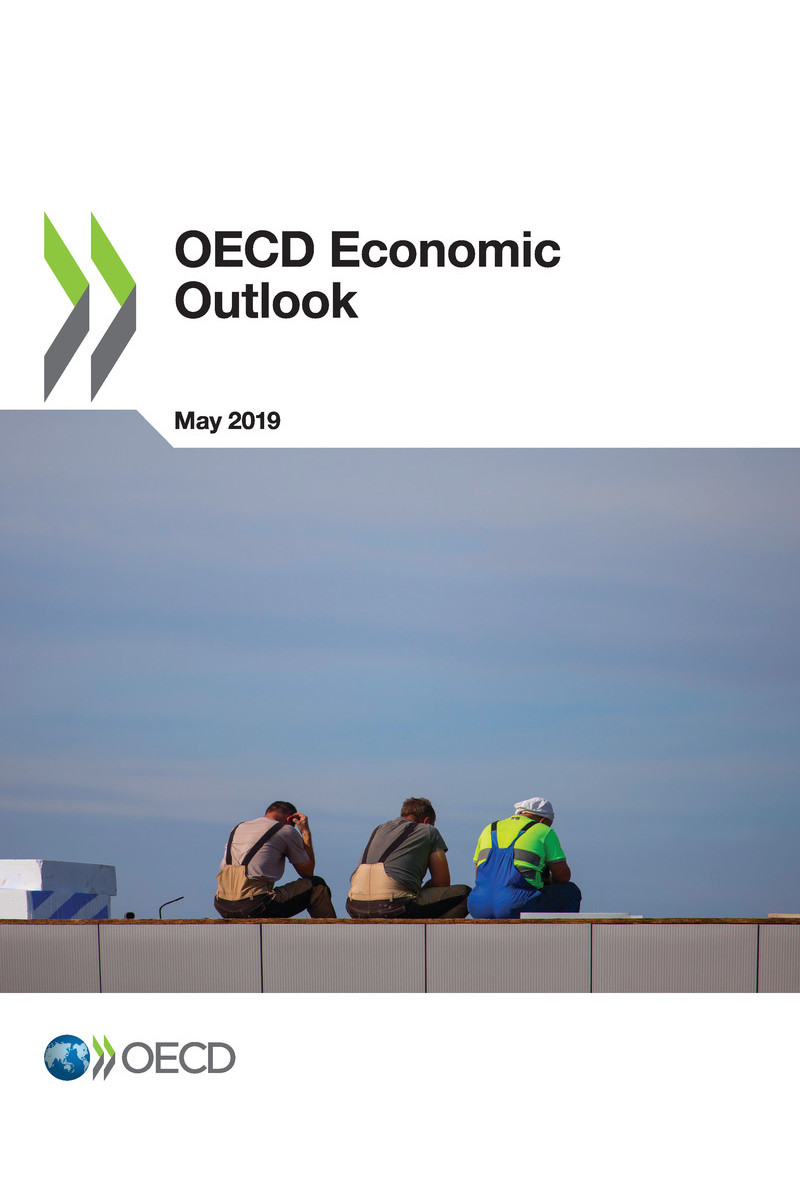
OECD (2019), OECD Economic Outlook, Volume 2019 Issue 1 , No. 105, OECD Publishing, Paris, https://doi.org/10.1787/b2e897b0-en .
A year ago, the OECD warned about how trade and policy uncertainties could significantly damage the world economy and further contribute to the growing divide between people. A year later, global momentum has weakened markedly and growth is set to remain subpar as trade tensions persist. Trade and investment have slowed sharply, especially in Europe and Asia. Business and consumer confidence have faltered, with manufacturing production contracting. In response, financial conditions have eased as central banks have moved towards more accommodative monetary stances, while fiscal policy has been providing stimulus in a handful of countries. At the same time, low unemployment and a slight pick-up in wages in the major economies continue to support household incomes and consumption. Overall, however, trade tensions are taking a toll and global growth is projected to slow to only 3.2% this year before edging up to 3.4% in 2020, well below the growth rates seen over the past three decades, or even in 2017-18.
While growth was synchronised eighteen months ago, divergence has emerged between sectors and countries depending on their exposure to trade tensions, the strength of fiscal responses and policy uncertainties. The manufacturing sector, where global value chains prevail, has been hit hard by tariffs and the associated uncertainty on the future of trade relationships, and is likely to stay weak. Business investment growth, also strongly linked to trade, is set to slow to a mere 1 per cent per year over 2019-20, from around 3 per cent per year during 2017-18. However, services, less subject to trade jitters and where most job creation takes place, continue to hold up well. In parallel, growth has weakened in most advanced economies, especially those where trade and manufacturing play an important role, such as Germany and Japan, with GDP growth projected to be below 1% in both countries this year. In contrast, the United States has maintained its momentum thanks to sizeable, albeit waning, fiscal support. Divergence is also visible among emerging-market economies, with Argentina and Turkey struggling to recover from recession, while India and others are benefitting from easier financial conditions and in some instances fiscal or quasi-fiscal support.
Moreover, the global economy remains largely dependent on persistent policy support. Ten years after the financial crisis, with subdued inflation, central bank balance sheets remain at unprecedented levels, interest rates - short and long-term - are historically low, and government debt, except for a few cases, is much larger. With a few exceptions, emerging-market economies have kept large reserve buffers. In short, central banks have barely normalised the monetary policy stance and their support remains essential.
Overall, in spite of unprecedented policy support in the wake of the global financial crisis, the recovery has not been vigorous and lasting enough to translate into higher wages and better standards of living. Since 2010, real GDP per capita, an imperfect proxy for living standards, has increased by only 1.3% per annum in the median OECD country. Even though unemployment is at its lowest rate in nearly four decades, real wages are projected to grow by less than 1.5% per year in 2019-20, below the 2% pace in the decade prior to the crisis in the typical OECD economy. This means that, ten years after the crisis, standards of living have improved too slowly to significantly reduce inequalities, which had widened for the two decades running up to the crisis. For example, for median households in the large advanced economies, the pace of increase in real disposable income has fallen since the crisis, except in the United States.
The outlook remains weak and there are many downside risks that cast a dark shadow over the global economy and peoples well-being.
First, the mediocre growth outlook is conditional on no escalation of trade tensions, which cut across the Americas, Asia and Europe. Simulations in this Outlooks first chapter show that renewed tensions between the United States and China could shave more than 0.6% from global GDP over two to three years.
Second, manufacturing and services do not work in isolation. While services have remained buoyant, providing a buffer, it is unlikely that they decouple for long from manufacturing. More than a third of manufacturing gross exports comes from services, and services contribute, directly or indirectly, to more than half of global exports. In addition, manufacturing crucially depends on investment, which is not only an engine of growth and employment today but also shapes tomorrows growth and living standards.
Third, China remains a source of concern, as the deployment of monetary, fiscal and quasi-fiscal tools not only has uncertain effects on activity, but might continue to fuel non-financial corporate debt, already at a record high level. We estimate that a 2-percentage point reduction in domestic demand growth in China, sustained for two years and combined with heightened uncertainty, could reduce global GDP by 1 per cent by the second year.
Finally, private sector debt is growing fast in major economies. The global stock of non-financial corporate bonds has almost doubled in real terms compared with 2008, at close to USD 13 trillion, and the quality of debt has been deteriorating, including a heightened stock of leveraged loans. A new bout of financial stress could erupt.
Font size:
Interval:
Bookmark:
Similar books «OECD Economic Outlook, Volume 2019 Issue 1»
Look at similar books to OECD Economic Outlook, Volume 2019 Issue 1. We have selected literature similar in name and meaning in the hope of providing readers with more options to find new, interesting, not yet read works.
Discussion, reviews of the book OECD Economic Outlook, Volume 2019 Issue 1 and just readers' own opinions. Leave your comments, write what you think about the work, its meaning or the main characters. Specify what exactly you liked and what you didn't like, and why you think so.

